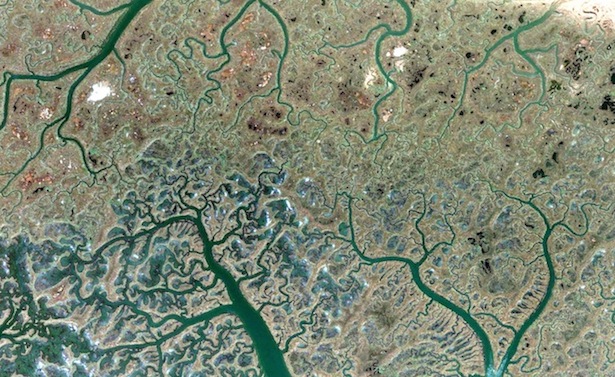It's that time again, to discern the signal from the noise and deliver up the top sharing stories from the week. So without further adieu, let's get to it:
 A common critique of video games is that they discourage creativity, forcing players in down a path of predetermined decision trees. Such critiques ignore the enormous success of games like Minecraft, which situates players in a virtual sandbox only limited by their imaginations. Imagine a globally-networked LEGO set made of pixels, and you get the idea. But can Minecraft's virtual world help improve communities in the physical world? Mojang, the company behind Minecraft, have teamed with the United Nations Human Settlements Programme to create Block by Block, an initiative to enable children to prototype improvements to their own communities. Block by Block's pilot community is Kibera, located in Nairobi, Kenya.
A common critique of video games is that they discourage creativity, forcing players in down a path of predetermined decision trees. Such critiques ignore the enormous success of games like Minecraft, which situates players in a virtual sandbox only limited by their imaginations. Imagine a globally-networked LEGO set made of pixels, and you get the idea. But can Minecraft's virtual world help improve communities in the physical world? Mojang, the company behind Minecraft, have teamed with the United Nations Human Settlements Programme to create Block by Block, an initiative to enable children to prototype improvements to their own communities. Block by Block's pilot community is Kibera, located in Nairobi, Kenya.
 With many recent college graduates finding themselves on the wrong side of the widening economic divide, the conversation of how to address youth unemployment grows louder. At Edgeryders, Barbara Giovanna Bello argues that youth unemployment is becoming a matter of access and social inclusion, and advocates for EU policy frameworks to address these issues. Stateside, the Rockefeller Foundation announced a $1 million prize this week to be given to an innovative startup with an emphasis on creating jobs for young people.
With many recent college graduates finding themselves on the wrong side of the widening economic divide, the conversation of how to address youth unemployment grows louder. At Edgeryders, Barbara Giovanna Bello argues that youth unemployment is becoming a matter of access and social inclusion, and advocates for EU policy frameworks to address these issues. Stateside, the Rockefeller Foundation announced a $1 million prize this week to be given to an innovative startup with an emphasis on creating jobs for young people.
 Sharing lawyer Janelle Orsi, who penned our Policies for a Shareable City series, has released a new book, Practicing Law in the Sharing Economy: Helping People Build Cooperatives, Social Enterprise, and Local Sustainable Economies. Released through the Sustainable Economies Law Center, the book details the legal components that sharing businesses, organizations, and lawyers need to be well-versed in to build this emerging economy.
Sharing lawyer Janelle Orsi, who penned our Policies for a Shareable City series, has released a new book, Practicing Law in the Sharing Economy: Helping People Build Cooperatives, Social Enterprise, and Local Sustainable Economies. Released through the Sustainable Economies Law Center, the book details the legal components that sharing businesses, organizations, and lawyers need to be well-versed in to build this emerging economy.
 Codecademy announced an afterschool program this week, making the case that "every child [should] learn how to program" and that "digital literacy is now a fundamental skill like reading and writing." The program provides students with a free kit and curriculum, and resources for parents and teachers.
Codecademy announced an afterschool program this week, making the case that "every child [should] learn how to program" and that "digital literacy is now a fundamental skill like reading and writing." The program provides students with a free kit and curriculum, and resources for parents and teachers.









